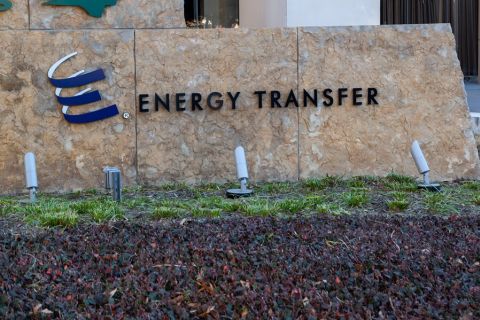Program Expands Opportunities for University Industry Collaboration
By Najib Abusalbi
In 2009, Schlumberger launched Ocean for Academia, a research collaboration program designed to allow universities to develop new technology on the Ocean* application development framework platform. Universities such as Rice, Texas A&M, Stanford, Unicamp, Imperial, Gubkin, University of Oklahoma, University of Texas and Louisiana State University were all part of the initial collaboration agreement. Since the program’s inception, other universities such as Yale, the Colorado School of Mines and the University of Utah have also joined the program. Students and research scientists at these universities are employing Ocean for a number of applications, from sub-salt seismic attribute extraction to novel approaches to reconciling geological models to historic production data, resulting in the creation of Ocean plug-ins that augment the Schlumberger Petrel* seismic-to-simulation workflows.
The Ocean for Academia program is designed to enable student engagement through an open innovation approach, where the intellectual property is retained by the innovators (universities). Schlumberger and other research partners, e.g. members of a research affiliates program or consortium, act as supporters and facilitators for taking this new intellectual property (IP) to market. One example of how Schlumberger is working to make this newly developed technology available to the industry is the recently launched Ocean Store, which is a site where users can browse, download and purchase Ocean plug-ins. The online store provides access to a growing set of capabilities that extend the broad Petrel platform.
The main focus of this program is to develop research and talent in academia, and to do it in a way that is most relevant to the oil and gas the industry. With energy being a primary concern for humanity going forward, it is essential that students are engaged early on. One of the most important results of this early engagement is the development and recognition of bright young students. The other significant result is intellectual property (IP), or innovative ideas and technology, which is created and made accessible to the industry. The students of today will soon play an integral role in finding and producing the energy of tomorrow, thus making this early engagement critical to the future of the oil and gas industry and, more importantly, humanity.
While it is apparent that the oil and gas industry benefits from a program like Ocean for Academia; clearly students are also great beneficiaries of this program. Not only do they get the benefit of strong talent and career development, but they also get the opportunity to make an impact on tomorrow’s world by contributing today.
Many of these benefits are already being realized today. One recent example of this is the Ocean Plug-in Competition. This competition involved the many universities that are currently a part of the program, basically competing head-to-head, to see which university could create the most beneficial Ocean Plug-in. Texas A&M and Stanford were both chosen as finalists of the competition, and were flown to London, England to take part in the Schlumberger Information Solutions Global Forum. Stanford was awarded the top honors at the Forum through an open voting process involving all participants.
In addition to the current breadth of Ocean for Academia, the program is also seeing great growth in other areas. The scope of research is now reaching most of the reservoir characterization domains. The universities continue to expand the adoption of the Petrel software platform as a learning and research tool. Currently, several projects have reached the commercialization readiness stage and are being evaluated by Schlumberger and other research partners, while a few are already available for sale at the Ocean Store.
The Ocean for Academia program connects the world of academia with the oil and gas industry and petrotechnical professionals, within an open innovation environment. The program has resulted in the creation of plug-ins that expand fundamental G&G and reservoir engineering workflows with innovative science. Additionally, the program is directly contributing to the development of tomorrow’s talent, to fill the gaps that are being created as the quest for new talent intensifies.
Najib Abusalbi, Director of University Collaboration, Schlumberger
Recommended Reading
Exxon Mobil, Chevron See Profits Fall in 1Q Earnings
2024-04-26 - Chevron and Exxon Mobil are feeling the pinch of weak energy prices, particularly natural gas, and fuels margins that have cooled in the last year.
Marathon Oil Declares 1Q Dividend
2024-04-26 - Marathon Oil’s first quarter 2024 dividend is payable on June 10.
Talos Energy Expands Leadership Team After $1.29B QuarterNorth Deal
2024-04-25 - Talos Energy President and CEO Tim Duncan said the company has expanded its leadership team as the company integrates its QuarterNorth Energy acquisition.
Energy Transfer Ups Quarterly Cash Distribution
2024-04-25 - Energy Transfer will increase its dividend by about 3%.
ProPetro Ups Share Repurchases by $100MM
2024-04-25 - ProPetro Holding Corp. is increasing its share repurchase program to a total of $200 million of common shares.




